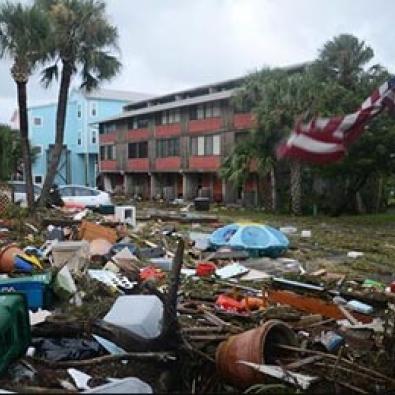
How to Prepare for Hurricane Season
Hurricane season will be arriving shortly. It begins June 1 and stretches through November 30. During this time, it is most likely that tropical storms will develop in the Northern Atlantic Ocean. These storms tend to affect the East coast of North America.
What to do Before Hurricane Season:
It’s important to prepare for hurricane season before it arrives. This includes researching evacuation routes, creating an emergency hurricane kit and protecting your home from hurricanes.
Researching Evacuation Routes
All cities should have evacuation information on its website. This typically includes information about:
- How to determine what zone someone lives in
- If the zone they live in needs to be evacuated at that time
- Local shelters, hospitals, and fire station locations
- Sandbag distribution locations
- Transportation Routes/Options
Creating an Emergency Hurricane Kit
An emergency hurricane kit is imperative because it contains items that can keep you safe if a hurricane occurs unexpectedly. The emergency hurricane kit should be easily accessible and waterproof.
Suggested items to include:

- One gallon of water, per person, per day for three days
- Ex: If there are 4 people in a family, that family should have at least 12 gallons of water in their emergency hurricane kit
- This water is both for drinking and sanitation
- Three-day supply of non-perishable foods
- These should be calorie-dense foods like protein bars and canned meals
- Utensils for the food
- Change of clothes for each person
- Consider packing a jacket or blankets in case the weather gets cool
- Battery-powered radio
- Flashlight
- Extra batteries
- First aid kit
- Copies of important documents
- Flood & homeowner’s insurance, ID cards, birth certificate, etc.
Protecting Your Home From a Hurricane
Before hurricane season, homeowners should ensure that their home will be safe. Here’s how to hurricane-proof a house:
- Check that windows and doors are equipped with impact-resistance glass or shutters. These protect against high winds and potential flying debris.
- Survey the land around the home. Remove any debris that could easily be picked up in high winds such as dead branches, children toys, or patio furniture.
- Clean out the gutters. There will likely be a lot of rain during a hurricane so these paths need to be clear for water to easily flow. This will prevent it from flowing to undesired places like the roof or attic.
- Consider installing a backup generator. It’s possible that the power may go out during the storm. A backup generator can power the essentials while riding out the rest of the hurricane.
How to Stay Safe During a Hurricane:
Major threats to personal safety can occur during a hurricane. Follow these tips to stay safe and reduce risk of injury.
Seek Cover
Stay inside and away from windows and exterior doors. Wind speeds can get above 100 mph which allows the wind to pick up debris and hurl it. The debris could break through a window or door so it’s best to stay clear of these entry ways. Some of the safe areas in the home are interior rooms, closets, and bathrooms. A basement is also a safe place to wait out the storm.
It’s important not to go outside, even if it looks like the storm has cleared up. This could be the eye of the storm passing over and the storm will shortly pick back up to its full force. It’s also a good idea not to go outside due to the chance of being struck by flying debris.
In Case of Flooding
If water begins to enter a home, quickly shut off electricity at the main breaker. This will prevent any potential fires and can reduce damage to the appliances and electrical components of the home.
Traveling through floodwaters is a cause of avoidable deaths during hurricanes. A vehicle can be swept off the road in as little as a foot of water and an adult can be swept away in as little as six inches of water.
Miscellaneous
- If a home loses power, shut off all appliances to mitigate potential damage.
- Stay away from electrical equipment and baths/showers in case lightning were to strike.
What to do After a Hurricane Hits:
- Listen to the weather radio or local news for updates.
- If evacuated, wait until officials announce that it’s safe to return home.
- Stay away from/out of any buildings with water around them.
- Drive only when necessary and avoid any standing water or washed out bridges.
- Inspect the home for damage and document that damage for insurance purposes.
- If cleaning up debris, proceed with caution and wear protective clothing.
At College Hunks, we know that after a hurricane hits, the last thing someone wants to worry about is removing debris from their property. Luckily, we can help with storm debris removal! Just give us a call or book online and we can typically be on site that same day or the next! This will reduce stress that the hurricane could have potentially caused. Remember, we got your back!

